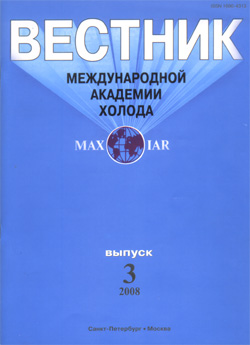
The avocado oil and pumpkin seed oil as a source of fatty acids

Annotation
Avocado and pumpkin seed oils have different origin and methods of production and are characterized by similar content. The purpose of the study is the comparison of the fatty acids composition in order to evaluate theiradvantages and disadvantages as well as beneficial qualitiesof their usage as biologically active additives and a cosmetic ingredient. The oils are characterized by a high content of fatty acids of various types, both saturated and unsaturated. In the article the overview of information about avocado and pumpkin origin and production based on literary sources is included; the composition of avocado and pumpkin oils is described. The chromatographic method of analysis allows to evaluate the quantitative ratios of the components. The content of stearic, palmitic, and myristic (fatty) acids was determined to be two times higher in pumpkin seed oil compared to avocado oil, it means the advantages of avocado oil as a low-calorie product. Theanalysis revealed especially high content of the essential unsaturated fatty acids: in pumpkin seed oil it is 80%, in avocado oil - 87%. Therefore, these oils show the expediency of using as a therapeutic agent for external and internal use particularly to reduce the risk of cardiovascular diseases.
Keywords
Постоянный URL
Articles in current issue
- The 29th General Annual Meeting of the International Academy of Refrigeration
- The results of the activities of the IAR in 2021 and objectives for 2022 (Report of the IAR President at the 29th General Annual Meeting on April 21, 2022) List of members of the International Academy of Refrigeration (as of 21.04.2022)
- Mathematical model for capacity regulation of screw single-rotor compressor by capacity control in the form of rotary adjustment ring
- Systems of electricity accumulating based on cryogenic technologies of air liquification
- Selection of refrigerants for refrigeration systems of fruit and vegetable stores
- Algorithm and the examples of multiparametric automated computational optimization for turboexpander compressor stage 3D impellers
- Thermal stability of a functional probiotic food ingredient based on encapsulated microorganisms Lactobacillus plantarum SP-A3
- Enzymatic extraction of oil from Atlantic mackerel waste and its use in functional nutrition
- Evaluation of turbulence models for flow and heat transfer of drop-shaped tubes
- Analysis of methods for calculating the thermal conductivity of new liquid hydrofluorochlorine derivatives of olefins on the saturation line
- Solution of a mathematical model for the concentration of a hexane solution of technical paraffin to obtain its food modification
